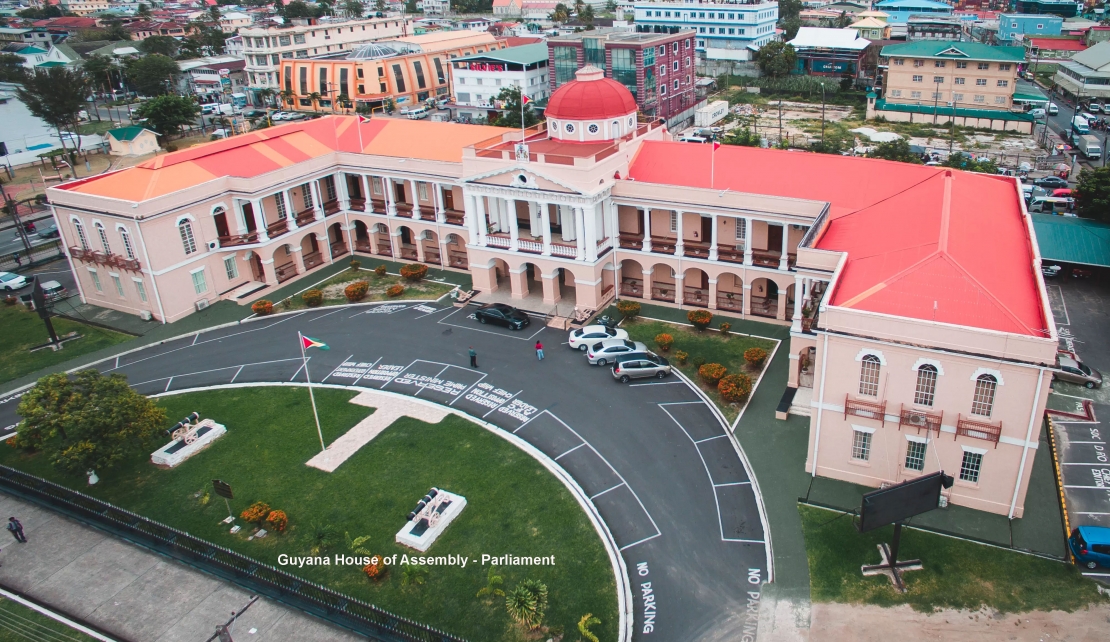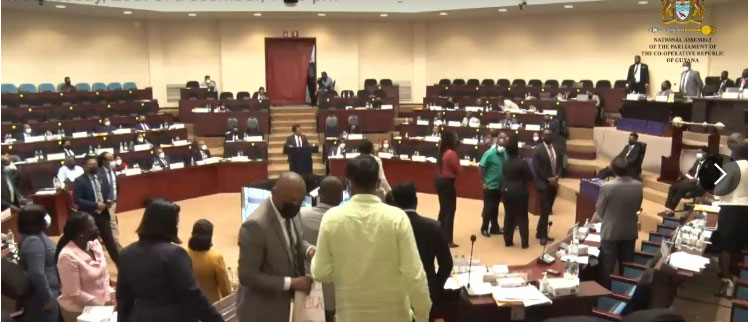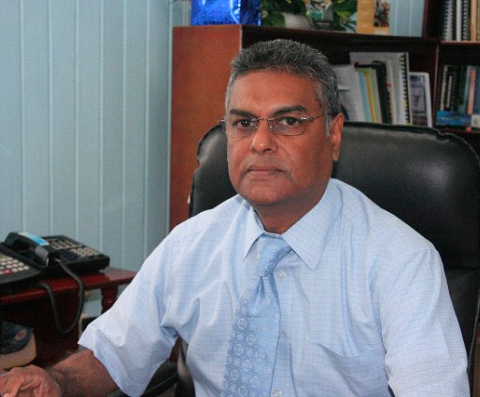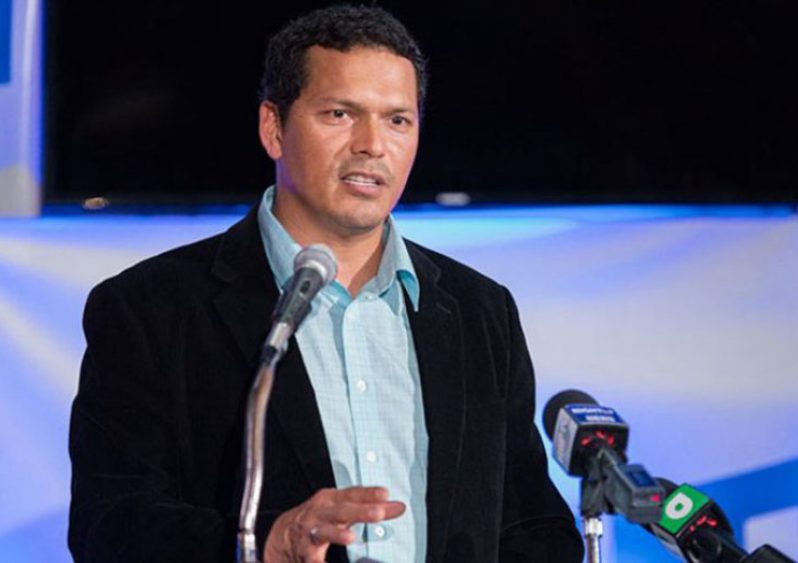GUYANA | Controversial 'Oil Money Bill' passed amid Opposition and Parliamentary Pandemonium

GEORGETOWN, Guyana, December 30, 2021 - Pandemonium broke out in the Guyana House of Assembly on Wednesday, as opposition members failed in their bid to prevail on House speaker Manzoor Nadir to suspend debate on the controversial "Oil Money" Natural Resource Fund Bill until a select committee of the House had a chance to fully examine its provisions.

The coalition said the passage of the Bill was “null and void” as the 2019 Act was not repealed and remains in force. ”
“What is alarming, is that the Speaker who should know better was complicit in this gross violation of the Standing Orders, Principles and Conventions associated with the good conduct of Parliamentary affairs,” the coalition added.

They objected to the reduction of an oversight committee from 22 to nine and the inclusion of a Board to manage the Natural Resources Fund. That Board would be appointed by the President.
Also facing strong objection was the formula used to draw down oil revenues for deposit into the Consolidated Fund.
Opposition Chief Whip Christopher Jones tried to convince the House Speaker to push back debate on the legislation due to public outcry by the opposition and civil society organisations, however, Nadir would have none of that and refused to yield.
However, when it became obvious that the government side would not yield to the requests by the opposition to send the Bill to a select committee, and Finance Minister Ashni Singh began debate on the Bill, immediately the opposition parliamentarians protested by banginging on the desks, walked around the Chamber, blew whistles and chanted, ‘No thiefin’ bill will pass’, ‘No thiefin’ bill will pass’.
House Speaker Nadir then called on Mr. Jones and a number of other parliamentarians to leave the sitting but they refused and he suspended the sitting for a few minutes.
When the house resumed, Minister of Governance and Parliamentary Affairs Gail Teixeira put the Bill to the vote and the House Speaker put all 47 clauses and two schedules to the vote. As the vote was taken, there were opposition shouts of ‘shame’, ‘shame’, ‘shame’, as the pandemonium continued.
The government has sought to assure that the new Natural Resource Fund Bill was aimed at removing ministerial control and placing them in the hands of a Board. Government has also said that the Public Accountability and Oversight Committee was merely “passive”.
The government has said that now there would be clear and predictable rules for withdrawing from the fund and would be subjected to oversight by the parliamentary budget debate, the Auditor General and the Public Accounts Committee.

Patterson told the House that while the Private Sector and Civil Society may have been consulted on the legislation, the Parliamentary Opposition was not. “Mr. Speaker, the Opposition was never invited to share our perspective. Never!” he said.
The Opposition, he pointed out, was first provided with copies of the Local Content Bill on December 16 – some 13 days ago. He said some 30 minutes before the convening of the National Assembly on Wednesday, the Opposition was invited by the Government to discuss the proposed amendments to the Bill as submitted by him. The meeting, however, never took place.
Patterson questioned whether the Bill is in conflict with any regional or international treaties for which Guyana is a signatory, such as Article 7 of the Revised Treaty of Chaguaramas. He warned that should there be any conflicts, Guyana runs the risk of being taken to Court or sanction.
Further, Patterson told the House that the Bill, which seeks to prioritise Guyanese nationals and Guyanese companies in the procurement of goods and services for the enhancement of the value chain of the petroleum sector, a Guyanese National is defined as a citizen of Guyana, however, Patterson, in his proposed amendments, said the definition should read ‘a citizen of Guyana by birth.”
Patterson explained that there were increasing concerns that the naturalisation process in Guyana was considered corrupt, as within a very short period of time, some 250 foreign nationals were naturalised. According to him, it is as simple as passing a bribe. Under such a corrupt system, born Guyanese could be short changed, Patterson warned.
Patterson had also proposed that the Inter-Agency Advisory Committee be completely replaced with a Local Content Oversight Committee, but while the recommendation was taken in part, the Government merely changed the name to Local Content Advisory Committee.

“To us Mr Speaker, a local content Law should be a comprehensive and inclusive piece of legislation. It must also take into consideration that Indigenous Peoples are already marginalised and are not actively participating in the Oil and Gas sector and therefore make provisions for their alternative livelihoods,” he told the House.
According to the Deputy Speaker, his initial recommendations were not included. “I sincerely hope this is only an oversight and not a deliberate act,” the LJP MP said while underscoring the importance of meaningful consultation.
To support his argument, he pointed to the International Labour Organization (ILO) Convention 169, which Guyana has not yet Ratified on Indigenous and Tribal Peoples, and the United Nations (UN) Declaration on the Rights of Indigenous Peoples, which requires for there to be free, prior and informed consent (FPIC).
He submitted that the LCP should be an instrument to drive change in the procurement Act to permit Indigenous Communities first preference in bidding on works and projects in and adjacent to their communities. He reasoned that it would help with the intellectual capacity and economic empowerment of Indigenous Peoples and their communities.
“It will also transform communities as they start to build local capacity and can work as a lead-in to them engaging in the Oil and Gas sectors.Alternatively, in the immediate transitional period, the LCP should define that over 75% of the labour force AND where possible 51% of projects by value must go the respective communities; where necessary, all materials should be sourced locally and just as important – paid for,” Shuman submitted.
He said Local Content should be looked at not only in the macro-economic nature of such a law, but also to the micro-economic drivers of strong sustainable village economies.
